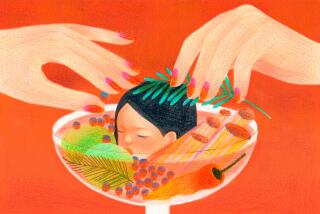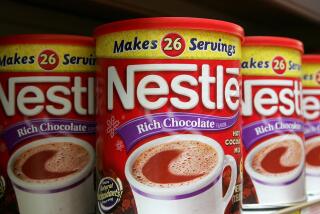Sugary drinks cause weight gain in preschoolers, study finds
Preschool parents take note: If your kid is clamoring for a daily hit of soda, sugary sports drinks, or fruit drink, you may want to just say no.
Young children who drink sugar sweetened beverages every day are more likely to be obese than their non-sugary-drink-guzzling friends, according to a new study published in the journal Pediatrics.
While this may seem self-evident, some previous reports that looked at a smaller group of preschool-aged children had not seen the same correlation.
For this study, lead author Mark DeBoer of the University of Virginia and his co-authors analyzed data collected by the Early Childhood Longitudinal Survey.
The survey follows young children over time and collects information through interviews with parents (usually mothers). The kids’ height and weight is also taken by professionals periodically.
Of the 9,600 children included in this particular study, 9.3% of 2-year-olds, 13% of 4-year-olds and 11.6% of 5-year-olds consumed more than one sugary drink a day.
The researchers found that 4- and 5-year-olds who regularly drank sugary drinks were more likely to be heavier than their peers. However, that was not true for 2-year-olds.
The researchers aren’t entirely sure why that is, but they are not suggesting it is just fine to regularly hand a 2-year-old a syrupy drink.
Two-year-olds who frequently drank sugar-sweetened drinks were more likely to be heavy by the time they turned 4 compared to their peers.
The obesity epidemic is alive and well in the youngest members of our population.
Among the randomly selected children in this study, 31.4% of 2-year-olds were already classified as obese, and 32.7% of 4- and 5- year olds.
“Overall, children drinking sugar-sweetened beverages on a regular basis have 17% to 20% increase in total calorie consumption,” the researchers write in the paper.
DeBoer suggests parents limit the amount of sugary drinks their kids consume, and that policy makers also make it harder for kids to have access to these drinks at school.







